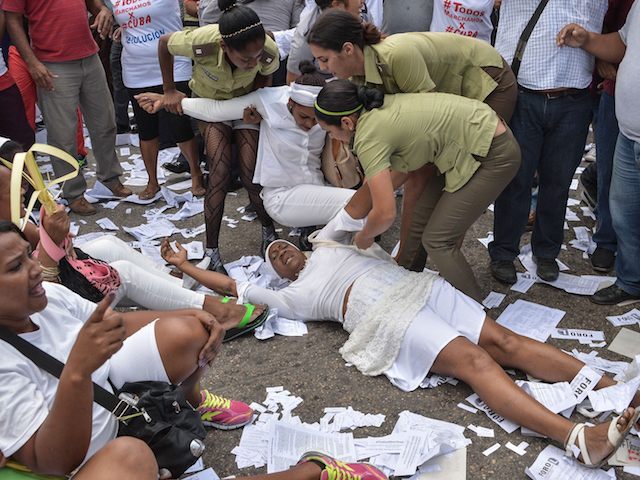Just askin…..there is an intelligence war with Hillary behind the curtains…..how did Sidney Blumenthal, the leader of Hillary’s personal global spy team get exact text from the NSA? Further, how come he had to give it to Hillary…she could have signed in herself…or could she?
Hundreds of questions and a brewing intersection with the whole intelligence community….
Schindler: For a year now, Hillary Clinton’s misuse of email during her tenure as secretary of state has hung like a dark cloud over her presidential campaign. As I told you months ago, email-gate isn’t going away, despite the best efforts of Team Clinton to make it disappear. Instead, the scandal has gotten worse, with never-ending revelations of apparent misconduct by Ms. Clinton and her staff. At this point, email-gate may be the only thing standing between Ms. Clinton and the White House this November.
Specifically, the Federal Bureau of Investigation examination of email-gate, pursuant to provisions of the Espionage Act, poses a major threat to Ms. Clinton’s presidential aspirations. However, even if the FBI recommends prosecution of her or members of her inner circle for mishandling of classified information—which is something the politically unconnected routinely do face prosecution for—it’s by no means certain that the Department of Justice will follow the FBI’s lead.
What the DoJ decides to do with email-gate is ultimately a question of politics as much as justice. Ms. Clinton’s recent statement on her potential prosecution, “it’s not going to happen,” then refusing to address the question at all in a recent debate, led to speculation about a backroom deal with the White House to shield Ms. Clinton from prosecution as long as Mr. Obama is in the Oval Office. After mid-January, however, all bets would be off. In that case, winning the White House herself could be an urgent matter of avoiding prosecution for Ms. Clinton.
That said, if the DoJ declines to prosecute after the Bureau recommends doing so, a leak-fest of a kind not seen in Washington, D.C., since Watergate should be anticipated. The FBI would be angry that its exhaustive investigation was thwarted by dirty deals between Democrats. In that case, a great deal of Clintonian dirty laundry could wind up in the hands of the press, habitual mainstream media covering for the Clintons notwithstanding, perhaps having a major impact on the presidential race this year.
The FBI isn’t the only powerful federal agency that Hillary Clinton needs to worry about as she plots her path to the White House between scandals and leaks. For years, she has been on the bad side of the National Security Agency, America’s most important intelligence agency, as revealed by just-released State Department documents obtained by Judicial Watch under the Freedom of Information Act.
‘What did she not want put on a government system, where security people might see it? I sure wish I’d asked about it back in 2009.’
The documents, though redacted, detail a bureaucratic showdown between Ms. Clinton and NSA at the outset of her tenure at Foggy Bottom. The new secretary of state, who had gotten “hooked” on her Blackberry during her failed 2008 presidential bid, according to a top State Department security official, wanted to use that Blackberry anywhere she went.

That, however, was impossible, since Secretary Clinton’s main office space at Foggy Bottom was actually a Secure Compartment Information Facility, called a SCIF (pronounced “skiff”) by insiders. A SCIF is required for handling any Top Secret-plus information. In most Washington, D.C., offices with a SCIF, which has to be certified as fully secure from human or technical penetration, that’s where you check Top-Secret email, read intelligence reports and conduct classified meetings that must be held inside such protected spaces.
But personal electronic devices—your cellphone, your Blackberry—can never be brought into a SCIF. They represent a serious technical threat that is actually employed by many intelligence agencies worldwide. Though few Americans realize it, taking remote control over a handheld device, then using it to record conversations, is surprisingly easy for any competent spy service. Your smartphone is a sophisticated surveillance device—on you, the user—that also happens to provide phone service and Internet access.
As a result, your phone and your Blackberry always need to be locked up before you enter any SCIF. Taking such items into one represents a serious security violation. And Ms. Clinton and her staff really hated that. Not even one month into the new administration in early 2009, Ms. Clinton and her inner circle were chafing under these rules. They were accustomed to having their personal Blackberrys with them at all times, checking and sending emails nonstop, and that was simply impossible in a SCIF like their new office.
This resulted in a February 2009 request by Secretary Clinton to the NSA, whose Information Assurance Directorate (IAD for short: see here for an explanation of Agency organization) secures the sensitive communications of many U.S. government entities, from Top-Secret computer networks, to White House communications, to the classified codes that control our nuclear weapons.
The contents of Sid Blumenthal’s June 8, 2011, email to Hillary Clinton—to her personal, unclassified account—were based on highly sensitive NSA information.
IAD had recently created a special, custom-made secure Blackberry for Barack Obama, another technology addict. Now Ms. Clinton wanted one for herself. However, making the new president’s personal Blackberry had been a time-consuming and expensive exercise. The NSA was not inclined to provide Secretary Clinton with one of her own simply for her convenience: there had to be clearly demonstrated need.
And that seemed dubious to IAD since there was no problem with Ms. Clinton checking her personal email inside her office SCIF. Hers, like most, had open (i.e. unclassified) computer terminals connected to the Internet, and the secretary of state could log into her own email anytime she wanted to right from her desk.

But she did not want to. Ms. Clinton only checked her personal email on her Blackberry: she did not want to sit down at a computer terminal. As a result, the NSA informed Secretary Clinton in early 2009 that they could not help her. When Team Clinton kept pressing the point, “We were politely told to shut up and color” by IAD, explained the state security official.
The State Department has not released the full document trail here, so the complete story remains unknown to the public. However, one senior NSA official, now retired, recalled the kerfuffle with Team Clinton in early 2009 about Blackberrys. “It was the usual Clinton prima donna stuff,” he explained, “the whole ‘rules are for other people’ act that I remembered from the ’90s.” Why Ms. Clinton would not simply check her personal email on an office computer, like every other government employee less senior than the president, seems a germane question, given what a major scandal email-gate turned out to be. “What did she not want put on a government system, where security people might see it?” the former NSA official asked, adding, “I wonder now, and I sure wish I’d asked about it back in 2009.”
He’s not the only NSA affiliate with pointed questions about what Hillary Clinton and her staff at Foggy Bottom were really up to—and why they went to such trouble to circumvent federal laws about the use of IT systems and the handling of classified information. This has come to a head thanks to Team Clinton’s gross mishandling of highly classified NSA intelligence.
As I explained in this column in January, one of the most controversial of Ms. Clinton’s emails released by the State Department under judicial order was one sent on June 8, 2011, to the Secretary of State by Sidney Blumenthal, Ms. Clinton’s unsavory friend and confidant who was running a private intelligence service for Ms. Clinton. This email contains an amazingly detailed assessment of events in Sudan, specifically a coup being plotted by top generals in that war-torn country. Mr. Blumenthal’s information came from a top-ranking source with direct access to Sudan’s top military and intelligence officials, and recounted a high-level meeting that had taken place only 24 hours before.
To anybody familiar with intelligence reporting, this unmistakably signals intelligence, termed SIGINT in the trade. In other words, Mr. Blumenthal, a private citizen who had enjoyed no access to U.S. intelligence for over a decade when he sent that email, somehow got hold of SIGINT about the Sudanese leadership and managed to send it, via open, unclassified email, to his friend Ms. Clinton only one day later.

NSA officials were appalled by the State Department’s release of this email, since it bore all the hallmarks of Agency reporting. Back in early January when I reported this, I was confident that Mr. Blumenthal’s information came from highly classified NSA sources, based on my years of reading and writing such reports myself, and one veteran agency official told me it was NSA information with “at least 90 percent confidence.”
Now, over two months later, I can confirm that the contents of Sid Blumenthal’s June 8, 2011, email to Hillary Clinton, sent to her personal, unclassified account, were indeed based on highly sensitive NSA information. The agency investigated this compromise and determined that Mr. Blumenthal’s highly detailed account of Sudanese goings-on, including the retelling of high-level conversations in that country, was indeed derived from NSA intelligence.
Specifically, this information was illegally lifted from four different NSA reports, all of them classified “Top Secret / Special Intelligence.” Worse, at least one of those reports was issued under the GAMMA compartment, which is an NSA handling caveat that is applied to extraordinarily sensitive information (for instance, decrypted conversations between top foreign leadership, as this was). GAMMA is properly viewed as a SIGINT Special Access Program, or SAP, several of which from the CIA Ms. Clinton compromised in another series of her “unclassified” emails.
Currently serving NSA officials have told me they have no doubt that Mr. Blumenthal’s information came from their reports. “It’s word-for-word, verbatim copying,” one of them explained. “In one case, an entire paragraph was lifted from an NSA report” that was classified Top Secret / Special Intelligence.
How Mr. Blumenthal got his hands on this information is the key question, and there’s no firm answer yet. The fact that he was able to take four separate highly classified NSA reports—none of which he was supposed to have any access to—and pass the details of them to Hillary Clinton via email only hours after NSA released them in Top Secret / Special Intelligence channels indicates something highly unusual, as well as illegal, was going on.
Suspicion naturally falls on Tyler Drumheller, the former CIA senior official who was Mr. Blumenthal’s intelligence fixer, his supplier of juicy spy gossip, who conveniently died last August before email-gate became front-page news. However, he, too, had left federal service years before and should not have had any access to current NSA reports.
There are many questions here about what Hillary Clinton and her staff at Foggy Bottom were up to, including Sidney Blumenthal, an integral member of the Clinton organization, despite his lack of any government position. How Mr. Blumenthal got hold of this Top Secret-plus reporting is only the first question. Why he chose to email it to Ms. Clinton in open channels is another question. So is: How did nobody on Secretary Clinton’s staff notice that this highly detailed reporting looked exactly like SIGINT from the NSA? Last, why did the State Department see fit to release this email, unredacted, to the public?
These are the questions being asked by officials at the NSA and the FBI right now. All of them merit serious examination. Their answers may determine the political fate of Hillary Clinton—and who gets elected our next president in November.


 Bejucal
Bejucal 